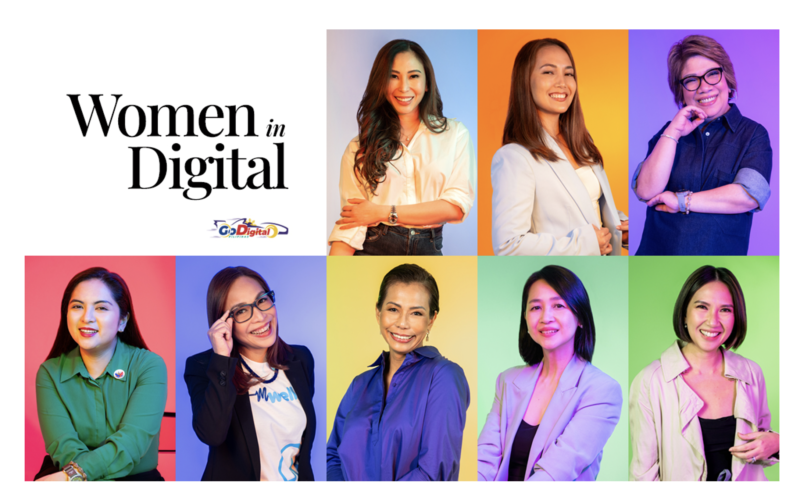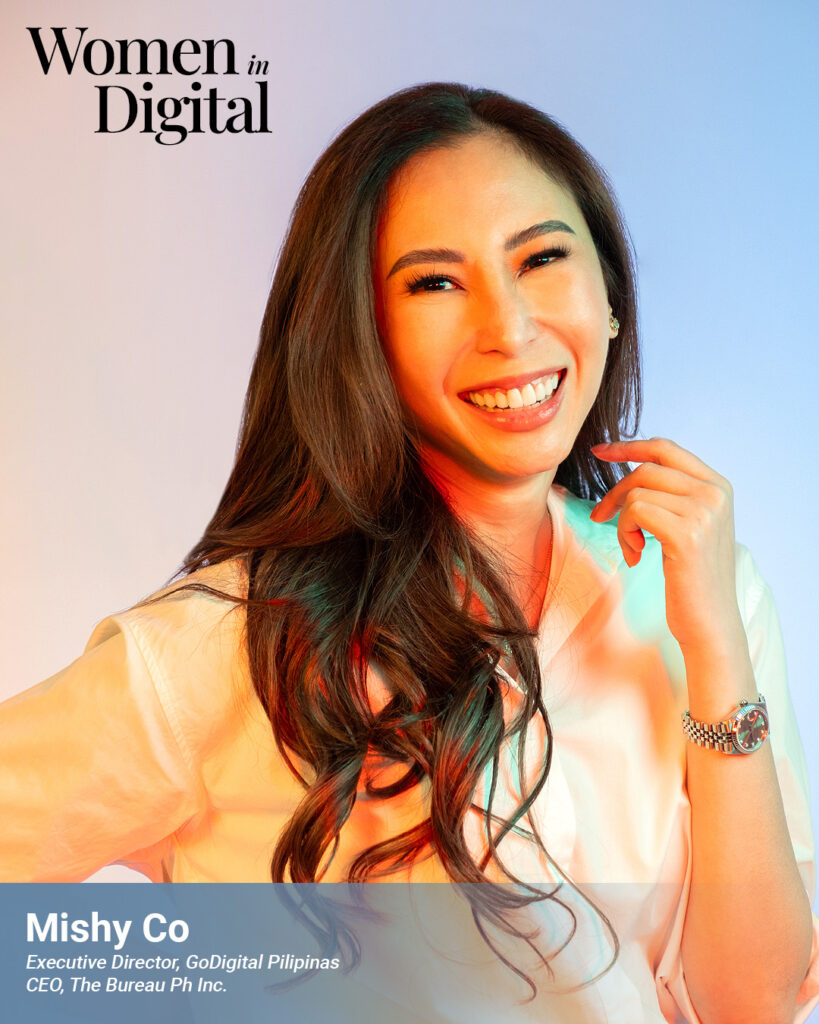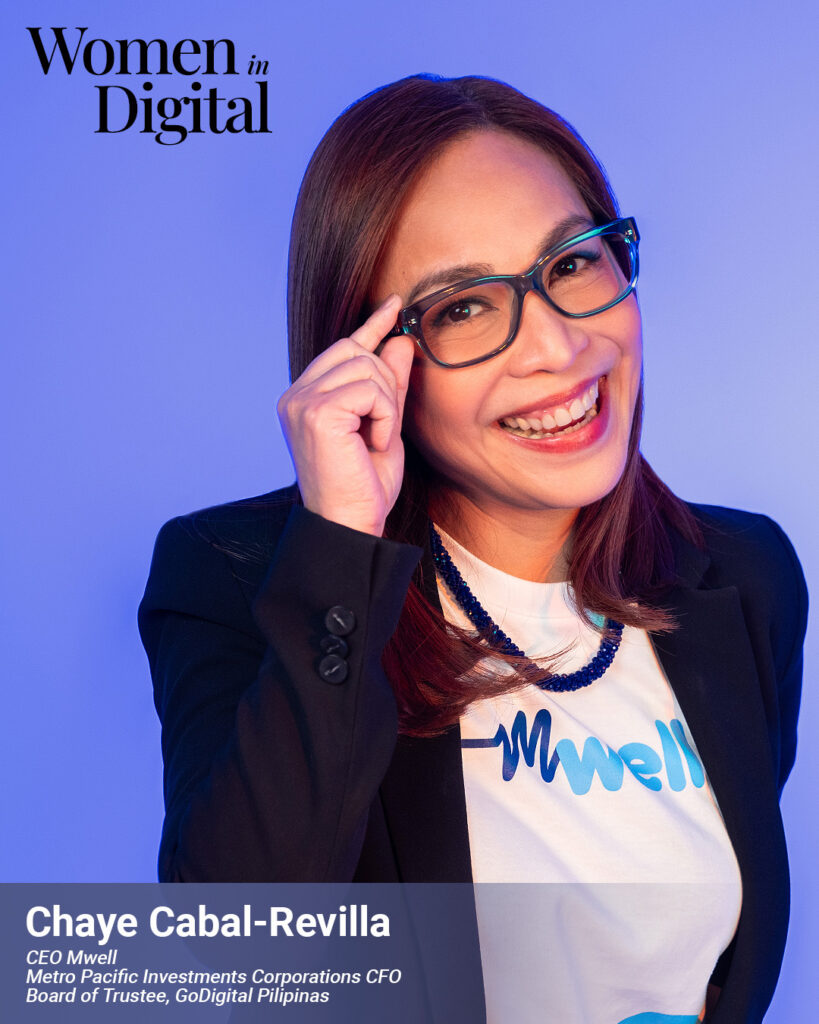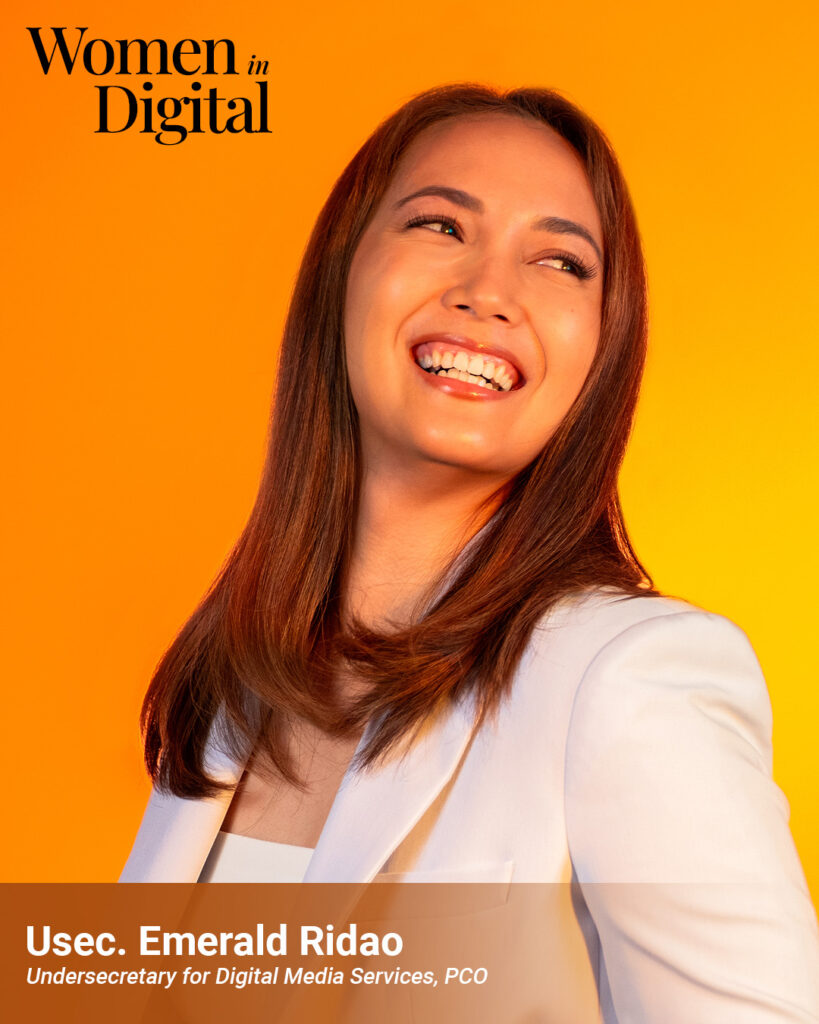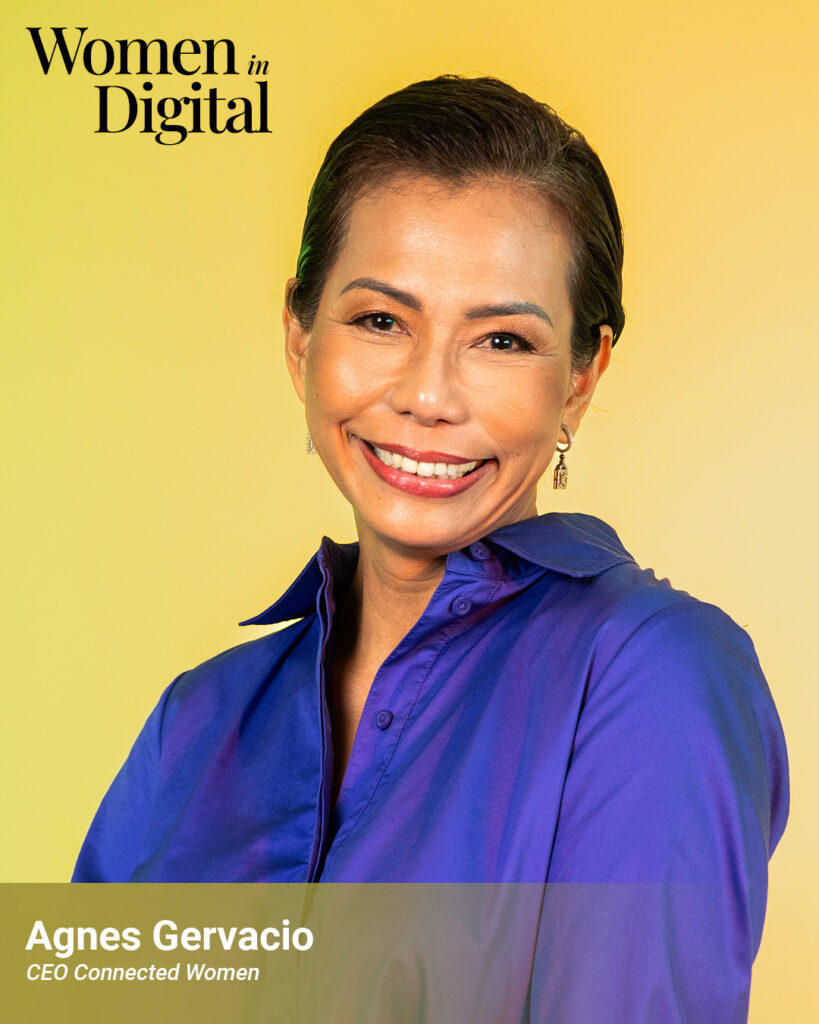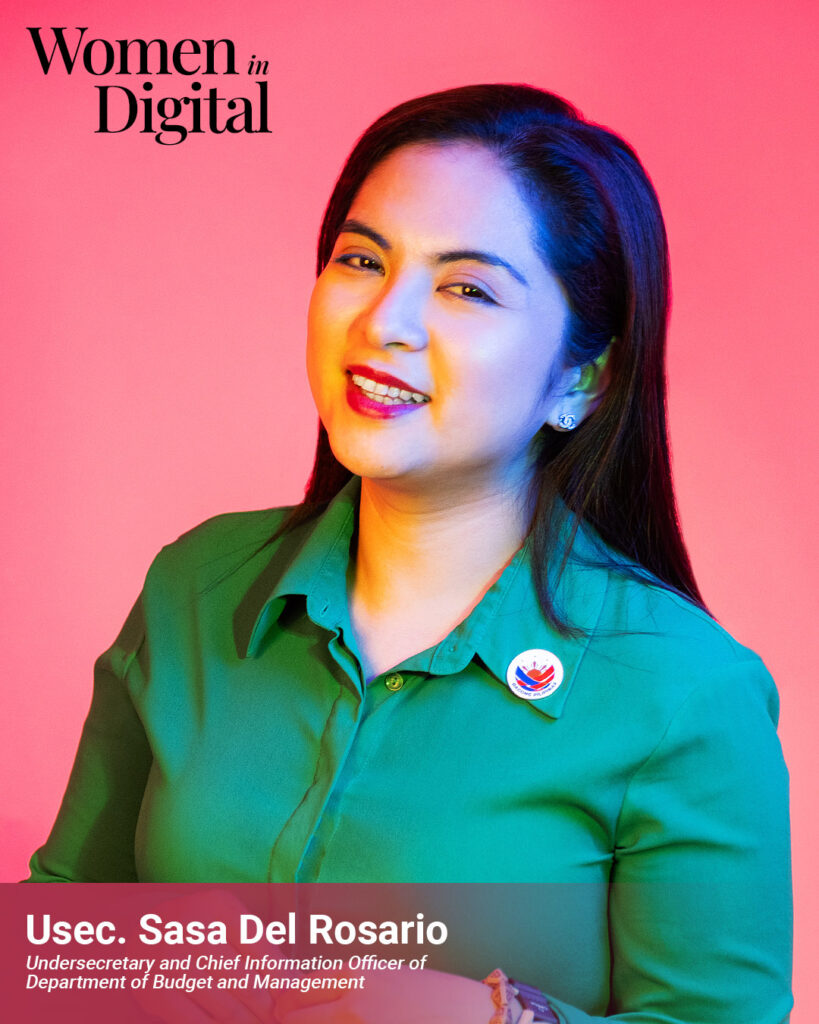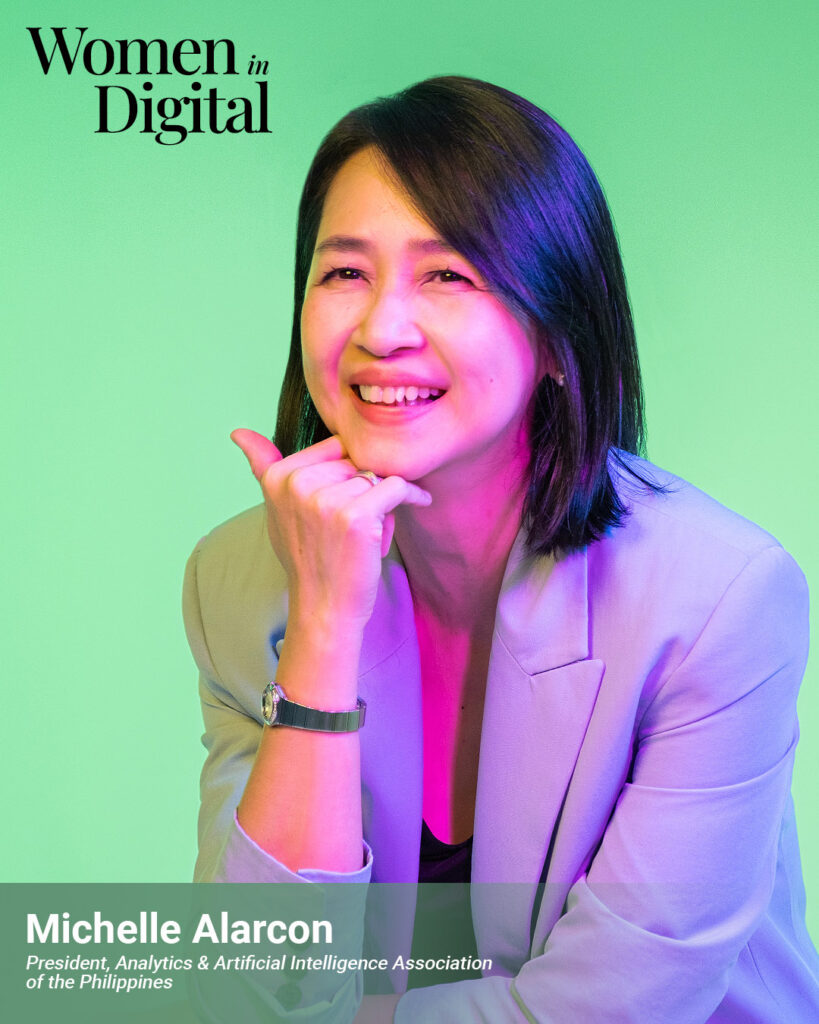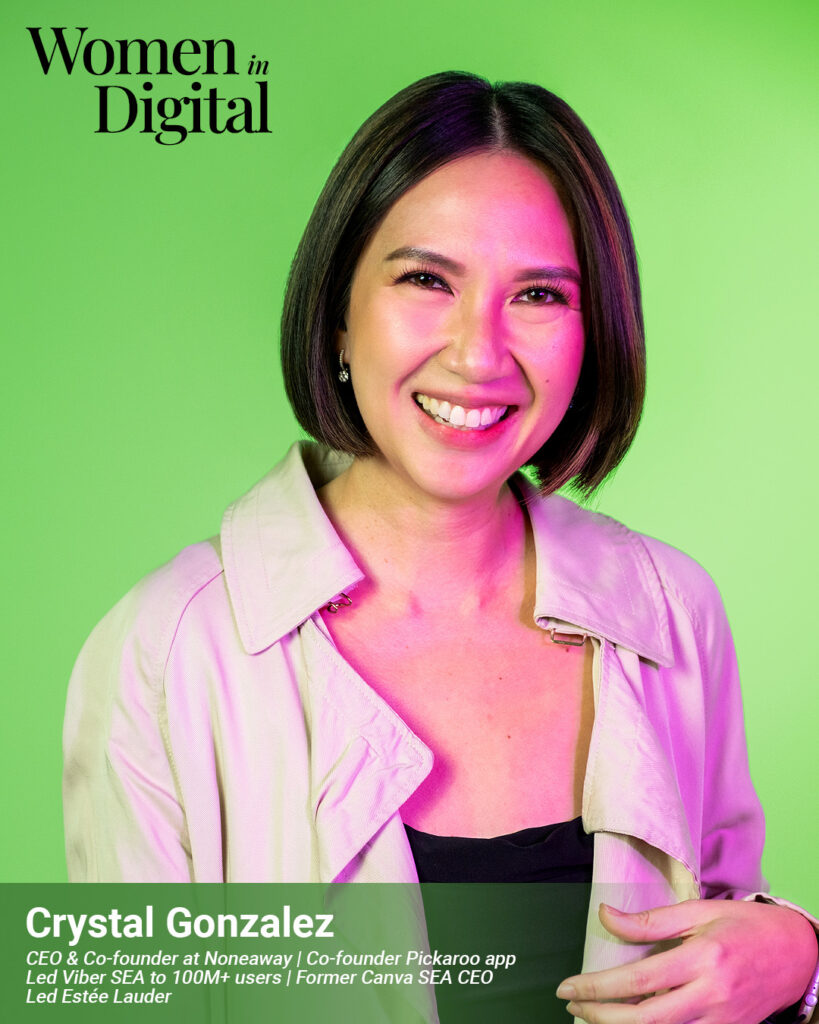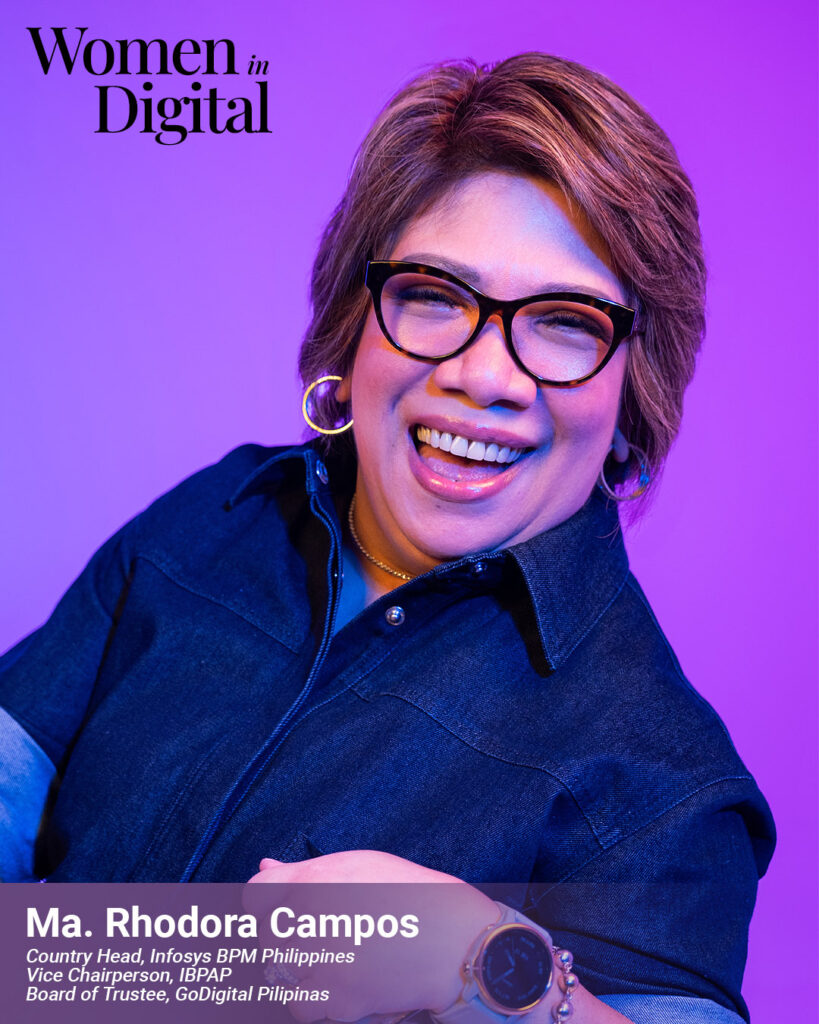Is technology still a man’s world? These successful female leaders from the country’s growing digital sphere beg to differ.
GoDigital Pilipinas, an organization that heavily advocates for faster and more efficient digitalization in the country, celebrates International Women’s Month by putting the spotlight on female tech trailblazers who are paving the way for a technologically adept Philippines.
Mishy Co, CEO of The Bureau PH
Advocating for a “digitally inclined Philippines” is Mishy Co, executive director of GoDigital Pilipinas.
“Despite ranking second globally in terms of social media consumption and usage, most Filipinos are still lacking when it comes to fundamental digital skills. These skills encompass basic proficiency in Microsoft Word, Excel and other essential tools,” says Mishy, who is also CEO of her own digital and media agency, The Bureau PH.
Through GoDigital Pilipinas, Mishy aims to empower her fellow Filipinos so that they may seize the opportunities brought about by digital advancements. She further underscores the rise of e-commerce platforms, especially during the height of the pandemic, as well as the developments in artificial intelligence, blockchain and cryptocurrency. “There has been explosive growth in e-commerce, with platforms such as Amazon and, locally, Lazada, Shopee and TikTok Shop,” she adds.
As a tech leader and innovator, Mishy further explains that GoDigital Pilipinas aims to bridge the gap and “enhance digital literacy” across all regions of the country. “We are working together with the Private Sector Advisory Council, government entities, and different movements and IT organizations to educate the common folk,” she reveals. The group has even rolled out different certification programs and deployed caravans to certain local areas, in order to help more Filipinos thrive in the digital sphere.
Chaye Cabal-Revilla, CEO of mWell and CFO of Metro Pacific Investments Corp.
“The Philippines is not really known for pioneering tech and digital advancements. But because we’re just getting started on these things, it’s good to be part of it — especially as a woman,” says the CEO of mWell, one of the country’s first fully integrated health apps. Chaye is also CFO of Metro PacificInvestments Corp. and trustee of GoDigital Pilipinas.
Having spent the past three decades building a career in male-dominated industries, Chaye knows of what she speaks. “I’ve grown, lived and worked in many industries that are considered male-dominated,” she says. “But in all the companies that I’ve worked for, it’s really about your competence and your knowledge of the business. They don’t look at gender. I have never felt that there was any glass ceiling to break because, in my case, I was allowed to do the things that I wanted to do,” she adds.
Chaye notes that tech has seen unprecedented advancements in the past decade alone. “The expectations of the users and the customers have evolved. They want things done with ease and convenience,” she says. “They’re now very impatient. They want the journey to be fast, perfect and always designed to cater to what they need and want.”
To address this new set of demands, Chaye pushes for the rapid development of products and services within her group’s arsenal. For one, mWell enables doctors to serve more people outside of their geographic reach by providing for them an online platform. “With these technologies in place, we’re also able to service our oversees Filipino workers anywhere in the world,” she says. This helps our fellowmen and women seek professional advice, not just from their kababayans, but from medical workers who fully understand them and speak their language.
Aside from health consultations, mWell, through the mWell app, also offers free fitness and nutrition programs for its users to encourage a healthier lifestyle — all within a few taps on their smartphones. “We have to do some form of awareness and campaign for people to really take a look at their health and take their health seriously,” Chaye says. “And we’re doing just that through mWell.”
Emerald Ridao, Undersecretary for Digital Media Services, Presidential Communications Office
As undersecretary for Digital media in the Presidential Communications Office (PCO), Emerald Ridao’s primary duty is to communicate the policies, activities, and programs of the Office of the President, as well as the entire administration. “When it comes to the communications side, I handle what goes on in social media and what comes out in digital,” she explains. This includes battling fake news and misinformation, which have become all the more prevalent, no thanks to deep fakes and other AI tools.
While not without its disadvantages, the pros of technological advancement far outweighs its cons. According to her, the rise of platforms such as Patreon, for instance, enables women to “put themselves out there, monetize their presence, and really empower other women in these communities.”
Emerald further notes that community building through digital, specifically social media, has also been one of the most progressive advancements brought about by tech. “I’m seeing a lot of people who met online, spoke in the comments of the same post, and then kind of got to know each other from there,” she says.
Ridao says that the Philippines is a good place for women to work in the digital realm. “There’s definitely a big enough space here for all of us, and there’s a lot of support from all of the communities as well,” she explains.
For Emerald, pursuing a career in digital in modern times also means honoring the women who paved the way for them. “We are at a point now where women can be very free to post about themselves and their bodies on social media, but that would never have happened without the work of so many other women that came and fought before us,” she reminds.
Agnes Gervacio, CEO of Connected Women
Despite acknowledging that she’s in the “minority” as a woman in tech, the CEO of Connected Women is not backing down. “Some may think that men make better mathematicians or technologists than women, but we all know that’s not true, right? So, we continue to fight for space. We continue to be in the tech space,” she begins.
“Inclusivity should be at the core of what we do, even in technology,” she says. “We are ‘upskilling’ ladies from underserved sectors to make sure that they join the technological workforce. I look forward to having more women in the space, for sure,” says Agnes, who leads Connected Women — a platform that provides women with online skills development and remote work opportunities.
For Agnes, underscoring one’s skills and values is more important than gender. “My goal is to be as blind to gender as possible,” she says. “It has to be inclusive technology for all because representation allows us to be more diverse. It leads to more creativity.”
Agnes credits most of her success and confidence in building a career in tech to her mom, whom she describes as someone who has supported her with her dreams. “I draw strength from people who believe in my skills and do not see gender as a hindrance towards fulfilling a role that I’ve always looked at as something that I wanted to do in my life,” she concludes.
Sasa Del Rosario, Undersecretary and Chief Information Officer, Department of Budget and Management
As the IT head of DBM, she describes her job as “an enabler of tech” and a collaborator of the Department of Information and Technology (DICT) for the government’s digital transformation. “Together with DICT, we’re also ensuring that most of the digitalization projects of the entire government are properly funded,” she starts off.
Citing the disparity between the pay and the opportunities presented to men and women, this public servant laments that only a handful of women choose to pursue a career in information technology. As such, she uses her voice to encourage more women to enter this field.
“In cyber security, there are more men than women,” Sasa says. “But we also find that women who are in IT excel a lot in this space because we have a penchant for looking into details and the nitty-gritty of things.”
She also adds that female IT experts can come in handy for project development. “Every time I deal with women leading a project, most of them become successful because of those small details they pay attention to,” Sasa says. “In IT, there’s really something that I think needs to be done in order to encourage more women to come in.”
When asked if being a woman in a male-dominated industry pushes her to do more, Sasa says that it’s not about gender. Rather, it’s her personal goal to push the envelope even more because the core of her job is public service. “I really want to do public service and to at least make the lives of fellow Filipinos a little bit better than they found it or we found it before we assumed our term,” she explains.
As for women in IT, she leaves us with this thought: “We’re not really saying we’re better than the rest, but with everything that we’re doing, especially in digitalization, women make things a little more efficient and better.”
Michelle Alarcon, President of the Analytics and Artificial Intelligence Association of the Philippines
Michelle Alarcon sees digital platforms as an empowering tool, especially for women to be more productive and efficient with the time that she always seems to run out of.
The President of the Analytics and AI Association of the Philippines (AAP) recounts that the importance of digital solutions was emphasized during the height of the pandemic in 2020. “We were forced to adapt to digital platforms, which not only made us quickly embrace technology but also that people found ways to be more creative and resourceful in utilizing it to improve their economic situations,” she recalls.
”Before, the internet was maybe taken for granted as a mere tool for research and communications, but during the pandemic, the digital sphere offered boundless possibilities that even non-tech-savvy users were able to put up small businesses or earn from content.” And being digital-savvy is just the first step in improving everyone’s lives, according to her.
“This is what I stand for in the Board of Trustees at the GDP – because we need to go digital-first, and eventually be AI-ready,” she says. At the Analytics and AI Association of the Philippines, Michelle leads in building the ecosystem of data, analytics and artificial intelligence in the Philippines “so that we have enough supply of talent for analytics and AI to power organizations to make informed decisions, including our government,” she explains.
However this talent supply will also need gender diversity just like other technology careers, and she believes that analytics and AI tech are great equalizers. For this, she joined as co-founder For the Women Foundation, an organization that provides free data science scholarship to underprivileged women. Her passion for this field extended to joining the facultyof the UP School of Statistics where she shares real-world experience in data science and analytics.
“All these, in essence, the things that I do, is for love of data, and belief in the power of data to improve our lives. I can even dare to say that there may be no problem on earth that data cannot solve.” she concludes.
Crystal Gonzalez, CEO & Co-founder of Noneaway, co-founder, Pick.A.Roo
For the head of Noneaway and Pick.A.Roo, a woman in digital is someone who is always on the go, always up to date, and having fun with what she does. “The fun part of tech and being in digital is it’s always changing, so it’s always new,” says Crystal, who has led leadership positions in Canva Southeast Asia, Estee Lauder Philippines, Viber and many more.
This female executive also emphasizes that nowadays, people spend over six to 10 hours on their smartphones and computers. “It shifted from using digital or your phone or your laptop for a few hours to now the majority of our days. I saw that trend evolve,” she says.
As a woman in tech, Crystal is pushing for more women representation in the field and encourage women to join the industry by increasing exposure for these job opportunities. “I feel like if we want more women, then we need to say it and talk about it that there needs to be more women,” she expresses. “Both private and public entities should promote and encourage it. It would also be great if even the government had more women-initiated programs.”
She also highlights the importance of exposing children at a young age to engineering and technology to cultivate interests. “If you want to see more women in the future, be executives, tech, engineers, and all that, we have to start them young,” she says. “At a very young age, there are so many museums for science and arts and math, and all these encourage you to want to be a scientist or be in tech. It’s time to pay them a visit!”
Ayhee Campos, Country head of Infosys BPM Philippines, Vice Chairperson of IBPAP
For Ayhee Campos, a woman in digital is someone “who has the courage to fearlessly speak her mind and share her ideas to ignite curiosity that brings innovation and transformation to life.”
“More importantly, she is proactively helping other women thrive,” Campos adds.
Ayhee is currently the country head and senior regional delivery center head of Infosys of Business Process Management in the Philippines and Malaysia. She is also the vice chairperson of the IT and Business Process Association of the Philippines (ITBPM) and a member of the board of trustees at Go Digital Pilipinas.
“In the past decade, we have seen an increased adoption of social media in a big way,” she says. “Innovation is best seen in gadgets, such as how quickly cellular phone models and features have evolved through the years.”
To improve the digital landscape in the Philippines, Campos says a collaborative effort among companies, educational and government institutions is a must. “It will be important for humans to be very comfortable working alongside digital technology; this can no longer be avoided,” she says.
In the ITBPM, Campos explains that their main goal is talent development. “We aim to equip talent with skills in emerging technology to drive innovation at all levels – decision makers, technical experts, and generalist functions,” she says.
As for her goals in the future of digitalization in the Philippines, Campos says her vision is to create and generate one million digital jobs in the next two to three years. “GDP will partner with IBPAP, Connected Women, and other groups to make this happen,” she says. “Besides this, I’d love to see the Philippines at the forefront of capitalizing digital for good.”

